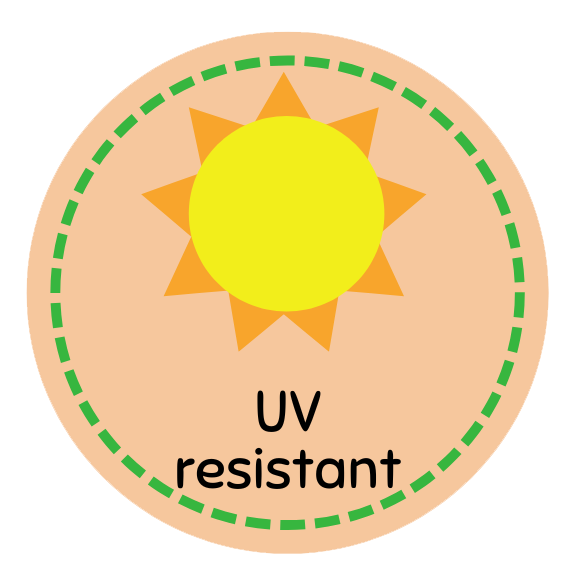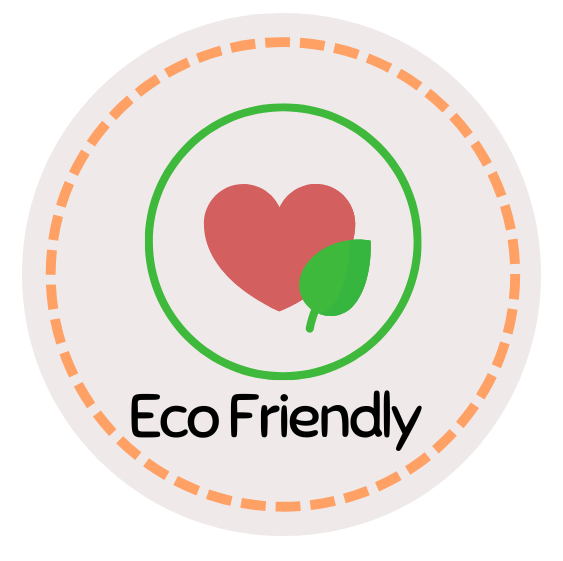Wool - Natural, renewable, versatile and sustainable
- Biodegrades quickly
- Highly durable
- Eco-conscious choice
- Naturally absorbs UV radiation
- Contains melanin
- Contains Nitrogen
- Does not contain harsh chemicals
- Popular for outdoor clothing
- Naturally antimicrobial
- Regulates body temperature
- Naturally flame resistant
- Self-extinguishing
Wool is a natural, eco-friendly material that has been used for thousands of years in a wide variety of applications. As a renewable resource that comes from sheep, wool is a sustainable material that can be produced without depleting finite resources. Sheep also help to maintain healthy grasslands and reduce the amount of CO2 in the atmosphere, further contributing to their environmental benefits.
Wool is also biodegradable and can be easily recycled or composted, reducing its impact on the environment. Unlike synthetic fibers, which can take hundreds of years to decompose in landfills, wool fibers biodegrade quickly and release valuable nutrients into the soil. This makes wool a sustainable choice for products such as clothing, bedding, and carpets.
Wool production also has a relatively low carbon footprint compared to other fibers, with minimal water usage and waste generation. Sheep require minimal water and feed resources, and their manure can be used as a natural fertilizer, further contributing to their environmental benefits.
Wool is a highly durable material that can last for many years with proper care, reducing the need for frequent replacements and minimizing waste. This is because wool fibers are naturally elastic and can withstand wear and tear without breaking down. Wool also has natural insulating properties that help regulate temperature and reduce energy consumption in buildings, making it an eco-friendly choice for insulation.
Finally, wool is a versatile material that can be used in a wide range of applications, from clothing and bedding to upholstery and insulation, making it a sustainable and eco-friendly choice for a variety of products. The unique properties of wool fibers, such as their breathability, moisture-wicking ability, and natural fire resistance, make wool a highly sought-after material for eco-conscious consumers. Overall, wool is a natural, renewable, and sustainable material with many eco-friendly qualities that make it a responsible choice for a wide range of products.
Biodegradable & Sustainable


100% biodegradable
Wool is a biodegradable material that is environmentally friendly and sustainable. Unlike synthetic fibers, which can take hundreds of years to break down in landfills, wool is a natural material that can be easily composted or recycled. When wool fibers are disposed of in soil or other natural environments, they biodegrade quickly and release valuable nutrients into the soil, helping to support plant growth and improve soil health.
Because of its biodegradable qualities, wool is a popular choice for eco-conscious consumers who are looking for sustainable alternatives to synthetic materials. In addition, wool is a highly durable material that can last for many years, reducing the need for frequent replacements and further minimizing its environmental impact.
However, it’s important to note that not all wool products are created equal, and some may be treated with chemicals or other materials that can affect their biodegradability. To ensure that you’re choosing a truly sustainable wool product, look for products that are made from natural, minimally processed wool and avoid products that are treated with harsh chemicals or synthetic materials.
Biodegradable in marine environments
- Biodegrades quickly and releases nutrients
- Highly durable
- an eco-conscious choice
UV resistant

Wool has many qualities that make it an ideal material for outdoor clothing and accessories, including its natural UV resistance. Wool fibres naturally absorb UV radiation, which can help protect the skin from sun damage. This is because wool fibres contain a pigment called melanin, which is also found in human skin and is responsible for absorbing UV radiation. In addition to its UV resistance, wool is also naturally moisture-wicking and breathable, which helps regulate body temperature and keep the wearer cool and dry in hot and humid conditions.
These properties make wool a popular choice for outdoor enthusiasts and athletes who need high-performance clothing that can stand up to harsh conditions.
- Naturally absorbs UV radiation
- Contains melanin
- Popular for outdoor clothing
Flame resistant

Wool is naturally flame resistant, making it a popular choice for many applications where safety is a concern. Unlike synthetic fibres, which can melt and stick to the skin when exposed to heat or flames, wool fibres are self-extinguishing and won’t continue to burn once the heat source is removed. This is because wool contains a high amount of nitrogen, which produces a non-flammable gas when exposed to heat or flame. Wool’s flame resistance also means that it doesn’t release toxic gases when it burns, making it a safer option for bedding, upholstery, and other household items.
Wool’s flame resistance has made it a popular material for firefighter uniforms, military clothing, and other applications where protection from heat and flames is critical. In addition to its flame resistance, wool is also naturally hypoallergenic, antimicrobial, and water-resistant, making it a versatile and sustainable material with a wide range of applications.
However, it’s important to note that not all wool products are created equal, and flame resistance can vary depending on the specific product and production process.
- Naturally flame resistant
- Contains nitrogen
- self-extinguishing
Hypoallergenic

Wool is a hypoallergenic material that is well-tolerated by many people with sensitive skin. Unlike synthetic fibres, wool is a natural material that doesn’t contain any harsh chemicals or irritants that can trigger allergies or skin reactions. In addition, wool fibres have a natural wicking ability that helps regulate body temperature and keeps the skin dry, reducing the risk of irritation and discomfort. Wool is also naturally antimicrobial, which means that it resists the growth of bacteria and other microbes that can cause odours and skin irritation.
Because of its hypoallergenic properties, wool is a popular choice for bedding, clothing, and other products that come into close contact with the skin.
However, it’s important to note that not all wool products are created equal, and some people may still be sensitive to wool fibres. In addition, some wool products may be treated with chemicals or dyes that can cause skin reactions, so it’s important to choose high-quality, natural wool products that are minimally processed and free from harsh chemicals.
- Natural and does not contain any harsh chemicals
- Regulates body temperature
- Naturally antimicrobial


